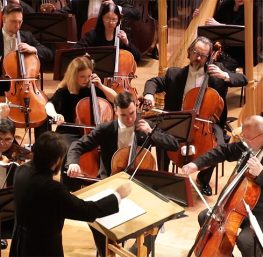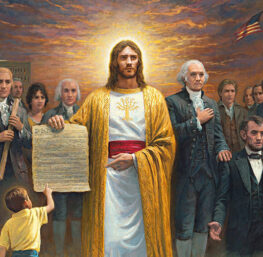FrontPageMagazine.com | Robert Spencer | July 20, 2007
The International Criminal Court recently issued warrants for the arrest of Ahmed Haroun, the minister for humanitarian affairs of Sudan, and Ali Kosheib, a leader of that country’s notorious janjaweed militia. The Sudanese government has refused to hand over the two for prosecution. Charges include murder, rape, torture and “imprisonment or severe deprivation of liberty.” Severe deprivation of liberty is a euphemism for slavery. Egypt’s Al-Ahram Weekly observed not long ago that in Sudan, “slavery, sanctioned by religious zealots, ravaged the southern parts of the country and much of the west as well.”
Muslim slavers in the Sudan primarily enslave non-Muslims, and chiefly Christians. According to the Coalition Against Slavery in Mauritania and Sudan (CASMAS), a human rights and abolitionist movement, “The current Khartoum government wants to bring the non-Muslim black South in line with Sharia law, laid down and interpreted by conservative Muslim clergy. The black animist and Christian South has been ravaged for many years of slave raids by Arabs from the north and east and resists Muslim religious rule and the perceived economic, cultural, and religious expansion behind it.”
The BBC reported in March 2007 that slave raids “were a common feature of Sudan’s 21-year north-south war, which ended in 2005….According to a study by the Kenya-based Rift Valley Institute, some 11,000 young boys and girls were seized and taken across the internal border — many to the states of South Darfur and West Kordofan….Most were forcibly converted to Islam, given Muslim names and told not to speak their mother tongue.” One modern-day Sudanese Christian slave, James Pareng Alier, was kidnapped and enslaved when he was twelve years old. Religion was a major element of his ordeal: “I was forced to learn the Koran and re-baptised “Ahmed.” They told me that Christianity was a bad religion. After a time we were given military training and they told us we would be sent to fight.” Alier has no idea of his family’s whereabouts. But while non-Muslims slaves are often forcibly converted to Islam, their conversion does not lead to their freedom. Mauritanian anti-slavery campaigner Boubacar Messaoud explains: “It’s like having sheep or goats. If a woman is a slave, her descendants are slaves.”
. . . more



